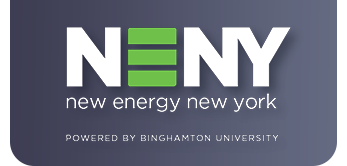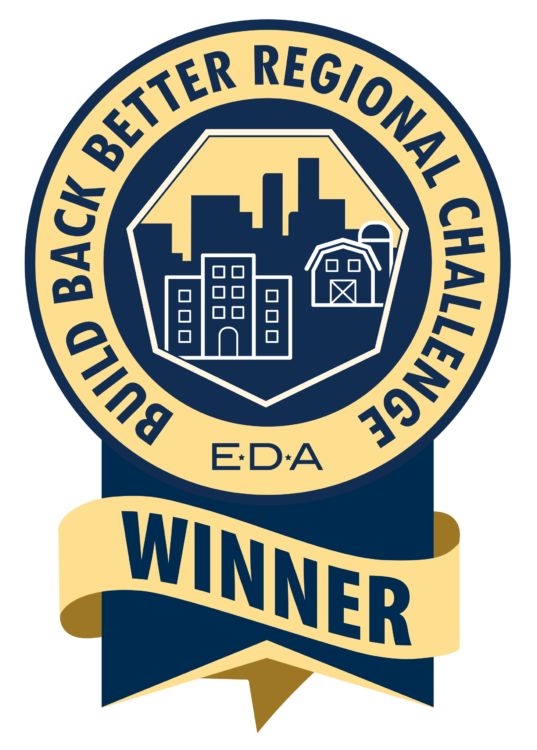NENY’s Student Startup Experience gives undergrads a look at working with entrepreneurs
By Katie Liu
Binghamton University junior Mariah Loo started her first day at clean energy startup Bridge Green Upcycle with a virtual workshop. As a systems science and industrial engineering major, she came in with more experience in medicine than batteries. Yet, attending the workshop with her new supervisor, she quickly began learning the ins and outs of the industry: The topic of that day was choosing contract manufacturers.
“[It was] definitely a lot of new information coming in, immediately, but it was very engaging,” she recalled. “I really like it. I do like a fast-paced environment, and it wasn’t too much of a fast pace, not too slow. It was just right.”
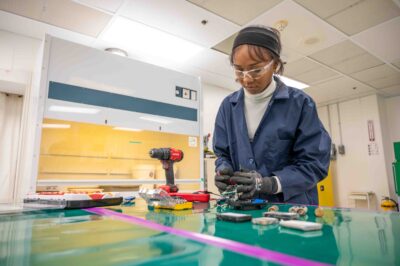
Now, she has played an integral role in setting up Bridge Green’s new prototype facility: from importing the shredders and hammer mills to crush extractable materials out of end-of-life batteries, to ensuring incoming machinery meets U.S. electrical requirements, even arranging the equipment’s delivery from JFK airport to Bridge Green’s space on the Huron Campus in Endicott.
This is par for the course for students participating in New Energy New York’s Student Startup Experience (NENY SSE). The internship program pairs undergraduates of any major across New York State with promising startups invested in the clean-energy transition.
SSE addresses three challenges related to that transition:
- Many trained people need to enter the U.S. workforce.
- Startups sometimes can’t afford to compensate employees.
- Students who need career-building internships can’t always afford to work for free.
SSE aims to take financial pressure off innovative startups and students who might join the clean-energy workforce.
What is the Student Startup Experience?
SSE is primarily concerned with offering paid opportunities to students, particularly those from underrepresented communities in STEM, in order to support crucially needed workforce development.
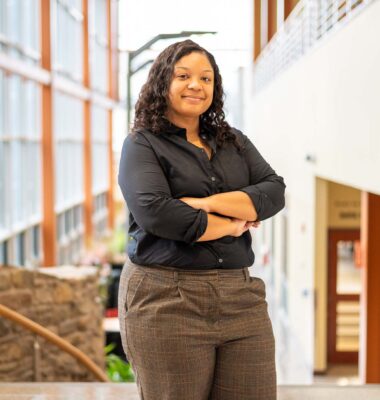
“For startup companies in general, most of them cannot afford to pay staff. This program is meant to supplement the income of what would possibly be a staff member or someone performing staff-level tasks,” said Innovation Program Coordinator Epiphany Muñoz ‘17, who oversees SSE. “It also allows the students who participate to get exposure to the entrepreneurial space as well as the clean-energy industry.”
NENY, a Binghamton University-led initiative to connect and bolster the robust battery ecosystem in upstate New York, funds SSE. The program offers students a stipend up to $10,000 per semester — for a maximum of three semesters — on top of flexible working arrangements and hours.
Meanwhile, companies can participate for free, to take advantage of student talent and potentially even gain additional staff members after interns graduate.
“Student Startup Experience is supposed to be a program that helps both sides of the street,” said Bandhana Katoch, executive director of the Koffman Southern Tier Incubator and assistant vice president in the Office of Entrepreneurship and Innovation Partnerships.
A variety of internship experiences
Even within the same companies, interns gain a wide range of experiences. Loo’s main project with Bridge Green Upcycle — whose mission is “cleaning up clean energy” by upcycling end-of-life lithium-ion batteries — was helping to set up its lab and prototype facility, which opened Dec. 5. A crucial step in the company’s scaling process, this is where Bridge Green Upcycle will begin extracting critical materials from batteries and returning them to the economy for further use.
Binghamton University graduate student Swapnil Mane’s internship with Bridge Green Upcycle looked different. Coming to the United States with three years of professional software engineering experience already under his belt, he sought out SSE in order to begin an internship as soon as possible, without needing a social security number or Curricular Practical Training (CPT) authorization, which international students on F-1 visas typically need before starting work.
Mane’s job at Bridge Green Upcycle involved analyzing different battery data sets in order to train AI models that could evaluate battery health and future actions — even if that meant initially starting out as the only person in charge of building those algorithms.
“As the ninth team member of the startup, I was responsible for working solely as the digital upfront, alone,” said Mane, a computer science master’s student. “It was exciting to balance out the kind of managerial role as well as the technical role of getting things done and being self-motivated throughout the journey.”
SSE interns have an opportunity to play what are often foundational roles in these startups, whether it’s in product testing, aiding scaling efforts or engineering digital technology.
“These are real-life projects that are helping scale, helping our domestic supply chain and helping the growing needs of batteries in this country,” said Balki Iyer, MS ’00, founder and director of Bridge Green Upcycle. “That’s really what our mission is, and that’s what the students are supporting us to get to.”
Though SSE companies work in the clean-energy sphere, internships aren’t limited to the research and development sector. Students also become knowledgeable in handling the business side of operations.
April Ransom, a first-year graduate student in the Sustainable Communities program at Binghamton, recently completed an internship at e-Zinc, a Canadian company innovating zinc-based, long-duration batteries as green alternatives to conventional ones.
Ransom handled market analyses and research to bring better insight, for example, to what kinds of markets the company can compete in and succeed.
“We’ve used charts, we’ve used slides, we’ve used analyses that [interns] have done in presentations with our board and with investors,” said Brett Simon, director of commercial strategy at e-Zinc and Ransom’s supervisor. “We’ve put their work front and center, and it’s been integral to the success of our team.”
Prioritizing diversity in tech
Another priority of SSE is to provide paid opportunities to students who are historically underrepresented in STEM fields. Through an initiative called Diversity in Cleantech, SSE is developing ways to engage students from these backgrounds, Muñoz said.
Diversity in Cleantech interns receive no difference in pay, nor are they given a particular advantage over other candidates during selection. Rather, the initiative’s aim is simply to give an additional shot to students who might’ve been overlooked in the hiring process the first time.
Each company participating in SSE trains and works with at least one Diversity in Cleantech intern per semester.
“We need to do a lot better in uplifting both women and [racially underrepresented] candidates, because we want to have better representation in this industry,” Simon said. “Every semester, we’ve always had at least one Diversity in Cleantech intern. I’m really glad that we as a company have been able to be part of that.”
Paying it forward
Broadly speaking, SSE also has ambitions to help revitalize Greater Binghamton, creating a self-perpetuating cycle of new jobs and people enticed to take those jobs.
“Most of the startups in which these students are working are located in Binghamton or upstate New York, and that allows us to create those hooks, to have those job opportunities [and] to retain our talent,” Katoch said.
Muñoz recalls the first iteration of SSE, when only around 12 interns signed up. Since its inception in 2021, SSE has bloomed to fund over 250 internships with more than 40 startups. She finds the growth of both the students and companies who’ve participated during the last few years inspiring.
“Being able to work directly with someone who is doing it from the ground up is so invaluable,” she said. “These students have all of these skills that they need to practice on someone or something, and this provides an amazing opportunity for them to do that.”
Now heading into a new year presenting new opportunities, companies such as Bridge Green Upcycle and e-Zinc are not only looking forward to chipping away at their own goals, but also the prospect of continuing to mentor more interns.
“From a future-building perspective, we’re all experienced professionals in the energy industry, and it’s hard to pay people back. So you have to pay it forward,” Simon said. “I think it’s really important to try to help mentor a new generation of energy leaders, through a program like NENY’s.”
